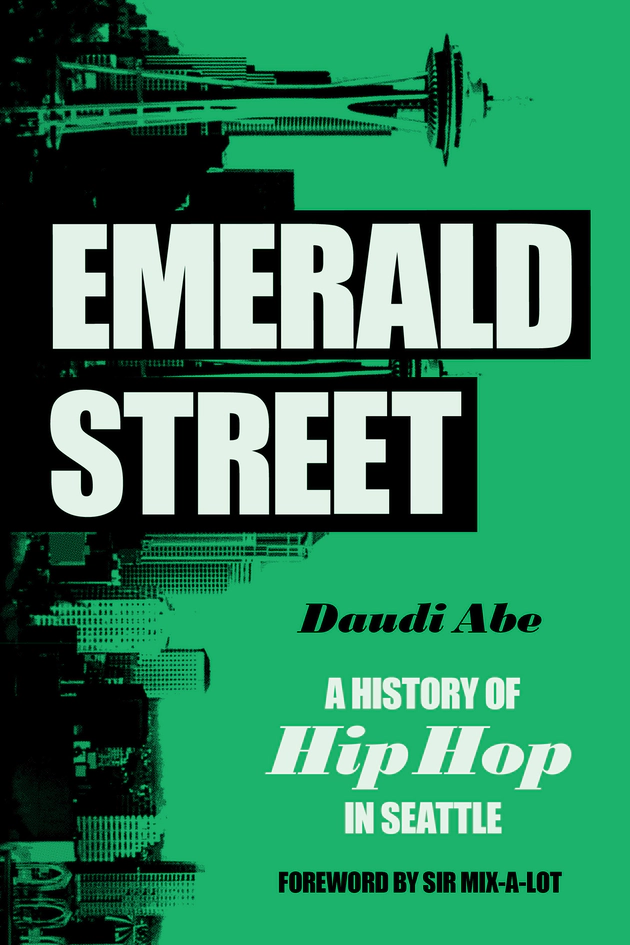Racial Competency in Education and Law Enforcement
Racial Competency in Teaching
When Daudi Abe first started teaching, he was struck by how often an ‘at risk’ student’s success depended completely on the approach and skill level of their teacher. A popular message in mainstream culture states, “success is a function of expectation.” If that is true then failure can also be a function of expectations. Since the majority of teachers are white, significant cultural distance often exists as soon as they enter multiracial classrooms around the state (and country). The racial achievement and discipline gaps in schools can have a depressing effect on the ‘academic self-esteem’ of students who are marginalized, come from disenfranchised communities, and suffer from intergenerational trauma.
Yet Abe also realized that simply being a Black person did not automatically qualify you to be an effective teacher for Black students, in the same way that being a white teacher is not an automatic disqualifier. After researching ways to keep Black students in the classroom and out of the principal’s office, Dr. Abe became a founding associate of the Academy for Rising Educators(ARE), a partnership with Seattle Public Schools and Seattle Central College that centers racial and cultural competency in the training of educators.
Many schools are overrun by “sympathetic destroyers.” These are teachers of all races and political persuasions who may feel sympathy toward multicultural students, but don’t have the skills to disrupt negative achievement outcomes. ARE intentionally works to create “warm demanders,” who cultivate a culture of community and commitment to success for all students through an antiracist, relationship-based approach. In this talk, Dr. Daudi Abe shows how variables such as academic self-esteem, past educational trauma, and racially incompetent teachers are issues in not only the K-12 system, but higher education as well. This community-based methodology highlights new understandings of what effects culturally responsive and student-centered methods have on the training of teachers who aim to provide intentional and lasting equity in classrooms from preschool to grad school. Participants are given the tools to create the #1 factor in reducing classroom discipline, which is personal relationships.
Racial Competency and Policing
Like many African-Americans, Abe has had a complicated relationship with the police. “I have had police officers both give me sports cards when I was a kid and point a shotgun in my face as a teen.”
Daudi Abe’s experience as an educator and trainer has given him a unique perspective on the intersections of race, teaching, and policing. Policing and teaching are both ‘gatekeeper’ professions, underpaid and underappreciated. Usually in the news for something bad, both have numerous additional responsibilities not in the job description, relationship-based work, and are often subjective/discretionary in nature.
Training of teachers and police officers in racial and cultural competencies related to their work was a natural overlap. Professional racial and cultural competencies are not separate skill sets from target practice and legal basics for police officers in the same way they are not separate from lesson planning and assessment formulation for teachers. In fact, we are actually doing a disservice to these professionals by allowing them to begin their careers without such discussions.
The recently adopted History of Race & Policing curriculum for recruits at the Washington Criminal Justice Training Commission (aka WA Police Academy) is the first state-wide program of its kind in the United States. Dr. Daudi Abe, co-designer and facilitator for training the trainers who will teach the class, discusses the role of racial history and competency in policing while addressing questions such as, why is it not enough to simply have BIPOC (Black Indigenous People Of Color) officers in law enforcement? What is Culturally Responsive Policing? What role do fines and fees play in the tensions between police and the communities they serve?
EMERALD STREET: A HISTORY OF HIP HOP IN SEATTLE
 Beginning in the early 1980s, Seattle’s hip-hop artists developed a community-based culture of stylistic experimentation and multiethnic collaboration, which subsequently created an alternative regional historical narrative. Dr. Daudi Abe explains how, while emerging at a distance from the rap music centers of New York City and Los Angeles, Seattle’s most famous hip-hop figures, Sir Mix-A-Lot, Ishmael “Butterfly” Butler of Digable Planets, and Macklemore, all found Grammy winning success by going directly against the grain of their respective eras. In addition, Dr. Abe describes the unique diversity and incredible reach of the Seattle hip hop scene, which has also produced a two-time world-champion breaking crew, globally renowned urban clothing designers, an international hip-hop magazine, and influential record producers.
Beginning in the early 1980s, Seattle’s hip-hop artists developed a community-based culture of stylistic experimentation and multiethnic collaboration, which subsequently created an alternative regional historical narrative. Dr. Daudi Abe explains how, while emerging at a distance from the rap music centers of New York City and Los Angeles, Seattle’s most famous hip-hop figures, Sir Mix-A-Lot, Ishmael “Butterfly” Butler of Digable Planets, and Macklemore, all found Grammy winning success by going directly against the grain of their respective eras. In addition, Dr. Abe describes the unique diversity and incredible reach of the Seattle hip hop scene, which has also produced a two-time world-champion breaking crew, globally renowned urban clothing designers, an international hip-hop magazine, and influential record producers.
BIO
Daudi Abe is a professor, writer, and historian who has critically engaged topics such as culture, race, gender, education, hip-hop, and sports for four decades. Dr. Abe serves as curriculum and instructional consultant at the Washington State Criminal Justice Training Commission where he co-designed a History of Race and Policing course for incoming recruits, the first state-wide program of its kind in the United States. He is also Faculty Coordinator for the Academy for Rising Educators (ARE) at SCC, a nationally recognized, grassroots, ‘grow-your-own’ teacher development and certification partnership with Seattle Public Schools and the University of Washington. Dr. Abe has been featured locally in The Stranger and The Seattle Times, and appeared on MSNBC and NPR. His latest book, Emerald Street: A History of Hip-Hop in Seattle, was published in 2020 by University of Washington Press.
The Response
“I worked with Daudi during his time with Humanities Washington’s Speakers Bureau tenure, where he gave presentations to audiences across the state. Daudi has an amazing ability to communicate tough concepts, uncomfortable truths, and challenging discussion points in ways that invite self-reflection, understanding, and open and honest conversations.”
Zaki Hamid
Director of Community Engagement
KUOW
“Dr. Abe was a pleasure to work with during the development of the History of Race and policing curriculum.
During Dr. Abe’s presentation of the material, he continuously fostered active audience engagement. He purposefully led everyone through the emotional material with care, patience and kindness.”
Monica Alexander
Executive Director
Washington State Criminal Justice Training Commission
“We have had the pleasure of working with Dr. Abe for several years now as a diversity trainer for our professional development workshops for educators. Whether in-person or online, he has proven to be a knowledgeable and engaging presenter, a calm and experienced guide through challenging conversations on race and diversity, always kind and professional. He is well-liked by workshop participants and consistently receives positive end-of-class evaluations. In short, he is a pleasure to work with.”
Dr. Randie Gottlieb
Founding Executive Director
UnityWorks
